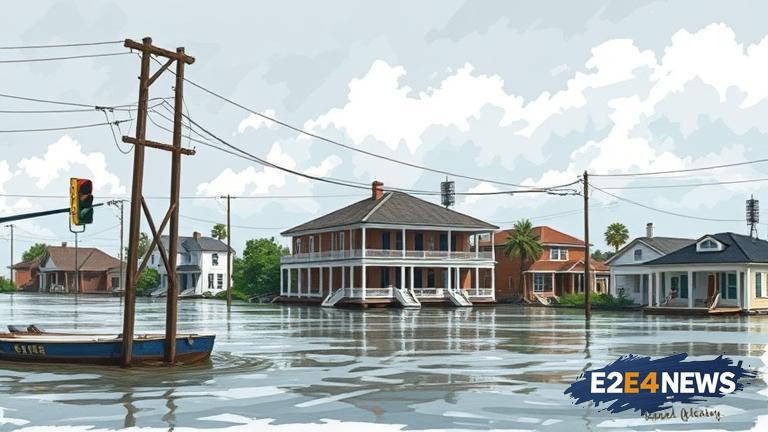It has been nearly two decades since Hurricane Katrina made landfall in Louisiana, causing widespread destruction and chaos in the city of New Orleans. The storm’s impact on the city’s public defender system was particularly severe, with the office facing significant challenges in the years that followed. The public defender system, which provides legal representation to low-income individuals, was already struggling to cope with a heavy caseload before the storm hit. However, the devastation caused by Katrina only exacerbated the problem, with many public defenders forced to flee the city and the office’s resources severely depleted. In the aftermath of the storm, the public defender system was faced with a massive influx of new cases, as many residents were arrested and charged with crimes related to the disaster. Despite the best efforts of the public defenders, the system was quickly overwhelmed, leading to lengthy delays and inadequate representation for many defendants. The situation was further complicated by the fact that many of the city’s courts and legal facilities were severely damaged or destroyed, making it difficult for public defenders to access the resources they needed to do their jobs. In the years since Katrina, the public defender system in New Orleans has continued to struggle, with ongoing issues related to funding, staffing, and resources. Despite some progress, the system remains underfunded and understaffed, with many public defenders carrying heavy caseloads and struggling to provide adequate representation to their clients. The consequences of this have been severe, with many low-income residents facing lengthy prison sentences and other harsh penalties due to inadequate legal representation. The issue has also had a disproportionate impact on communities of color, who are already more likely to be arrested and charged with crimes. In recent years, there have been efforts to reform the public defender system in New Orleans, including the implementation of new funding models and the hiring of additional staff. However, much work remains to be done, and the system continues to face significant challenges. The legacy of Hurricane Katrina serves as a reminder of the importance of a well-functioning public defender system, and the need for ongoing investment and support to ensure that all residents have access to adequate legal representation. The story of New Orleans’ public defender system is a complex and multifaceted one, involving issues of funding, staffing, and resources, as well as broader questions about justice, equality, and the role of government in society. As the city continues to rebuild and recover from the devastating effects of Katrina, it is clear that the public defender system will play a critical role in ensuring that all residents have access to justice and are treated fairly under the law. The impact of Katrina on the public defender system has also had a lasting impact on the community, with many residents still feeling the effects of the storm today. The storm highlighted the need for a more robust and resilient public defender system, one that is able to withstand disasters and other challenges while continuing to provide high-quality legal representation to those who need it most. In the end, the story of New Orleans’ public defender system serves as a powerful reminder of the importance of justice and equality, and the need for ongoing investment and support to ensure that all residents have access to the legal representation they deserve. The public defender system is a critical component of the justice system, and its effectiveness has a direct impact on the lives of thousands of people. The system’s struggles in the aftermath of Katrina have had a lasting impact on the city, and it will likely take years of effort and investment to fully recover. However, by working together and prioritizing the needs of the public defender system, it is possible to build a more just and equitable society, one in which all residents have access to the legal representation they need to thrive. The road to recovery will be long and difficult, but it is a journey that is essential to the health and well-being of the city and its residents. As the city of New Orleans continues to move forward, it is clear that the public defender system will play a critical role in shaping its future. The system’s ability to provide high-quality legal representation to low-income residents will have a direct impact on the city’s ability to reduce poverty and inequality, and to build a more just and equitable society. In the years to come, it will be essential to prioritize the needs of the public defender system, and to provide the funding and resources necessary to ensure that all residents have access to the legal representation they deserve. By doing so, it is possible to build a brighter future for the city and its residents, one in which justice and equality are available to all. The story of the public defender system in New Orleans is a powerful reminder of the importance of justice and equality, and the need for ongoing investment and support to ensure that all residents have access to the legal representation they need to thrive. The system’s struggles in the aftermath of Katrina have had a lasting impact on the city, and it will likely take years of effort and investment to fully recover. However, by working together and prioritizing the needs of the public defender system, it is possible to build a more just and equitable society, one in which all residents have access to the legal representation they deserve.
